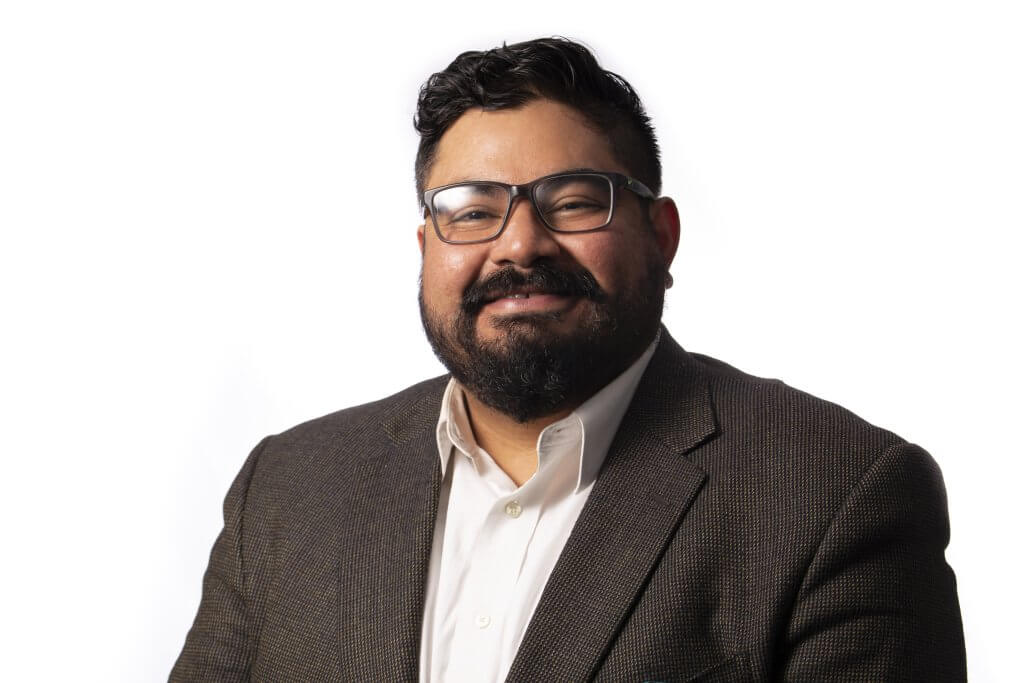
Media consumers are constantly surrounded by live debates, advertisements, trending social media posts, press releases and more, especially during election season — the height of political communications.
“Without communications, there would be no campaigns. It is the bridge between politicians and voters, and it means everything,” said Ricardo Valencia, associate professor of communications.
In Cal State Fullerton’s Politics in the Mediasphere class, students not only learn how to dissect these complex political campaigns, but also how to be professional political communicators themselves.
With a research background in international communications and public diplomacy, Valencia views the current political atmosphere as a living laboratory where students have a unique opportunity to analyze, critique and understand real-world political messaging while it’s happening.
Students will learn about local, state and national elections and the communications methodologies behind those campaigns. Studying such topics as celebrity endorsements, public speaking strategies and advertising, they’ll learn about the effectiveness of these methods and how they impact public opinion.
“It’s easy to be intimidated by politics because of its complexity, but my goal is to help students understand that they can be strong communicators in this realm,” said Valencia.
Using what they’ve learned, students will receive hands-on training as they design and manage their own campaign. Sampling from the campaigns they’ve studied, students will develop messaging, draft memos and create a comprehensive communications plan to win over their audience.

“I want students to step into that role as a campaign professional because it pushes them to make decisions about their branding and communications style,” said Valencia. “The skills that they gain from this exercise will help them succeed in any career they choose.”
While studying the candidates in the presidential race, students are encouraged to take a nonpartisan approach to their analyses, so that they can objectively understand their agenda and policy opinions.
“For example, Kamala Harris and the Democratic Party have shifted their messaging since 2020, focusing more on economic issues and health care; whereas, Donald Trump and the Republican Party have stayed focused on other issues like immigration,” said Valencia. “This course is about so much more than just asking, ‘Is the message right or wrong?’ Politicians have a plan to deliver a certain message. To be an effective communicator and political participant, you have to understand that plan.”
In addition to its real-world media analysis and application, students will walk away with foundational knowledge about laws, voter demographics, polling practices, U.S. government and the current political landscape. The class will also have the opportunity to hear from several bipartisan guest speakers and interact with a variety of field experts.
Training Campaign Communicators
For Gerardo Chagolla, the course is preparing him to make a difference as a political communications professional. Chagolla, a senior communications student who grew up in Inglewood, enrolled in the course because he wants to enact change through local politics in his hometown.
When his friend from high school announced that he was going to run for Inglewood City Council to represent District 4, Chagolla knew he wanted to get involved. As part of the campaign team, he helps write donation and volunteer letters, and assists with the team’s communications strategy, putting his course training to good use.
“This class is helping me understand exactly what I need to know about running a successful campaign, and in turn, I can apply that toward our campaign and help make important changes and improvements in my community,” said Chagolla.
After graduation, Chagolla plans to pursue a career as a boots-to-the-ground, hard-hitting news reporter, aspiring to be like his favorite journalists Mariana Van Zeller and Jorge Ramos.
“Being more informed about politics, campaigns and the inner workings of political communications is critical because it ensures that if a story comes up in that field, I have the background knowledge and understanding to cover it completely,” said Chagolla.